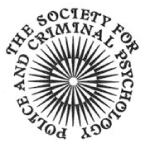Society for Police and Criminal Psychology |
|
| Diplomate in Police Psychology
Established in 1989, the Diplomate in Police Psychology is certification by the Society for Police and Criminal Psychology (SPCP) that a member has achieved a high level of knowledge, skills, and competence and is a leader in the field of applied Police Psychology. Through the Diplomate, the Society has long recognized competence among psychologists in many sub-disciplines, including industrial/organizational psychologists, academic psychologists, as well as licensed clinical psychologists. Diplomate status is peer recognition that the individual has achieved a level of knowledge, skills, and competence that exceeds the attainment of a terminal degree. It requires additional study and years of professional experience. The holder of the Diplomate is a capable and accomplished professional in the field of Police Psychology, to whom others can look for leadership and advice.
Attaining the Diplomate requires candidates to undergo a thorough application review and evaluation process conducted by a panel of active Diplomates. For more information on the Diplomate in Police Psychology or to obtain an application, please click on the respective link below. Any remaining questions can be directed to Dr. Scott Stubenrauch (swspsych@gmail.com). For those that have attained the Diplomate, we encourage you to reference this prestigious credential in your e-signatures using one of the following formats:
Benefits of Professional Certification as a Diplomate in Police Psychology through the Society for Police & Criminal PsychologyThe Diplomate in Police Psychology is professional certification by the Society for Police and Criminal Psychology (SPCP) that a member has achieved a high level of knowledge, skills, and competence and is a leader in the field of applied Police Psychology. The benefits for pursing certification as a Diplomate in Police Psychology include:
Application InstructionsThe requirements and an application form are available at the following links: Requirements and Process Application Form Pay your $400 Application Fee Online Diplomate Review Committee
Diplomates Awarded
Names marked + indicate that the Diplomate is an active member of the Society for Police and Criminal Psychology.
+ Names marked + indicate that the Diplomate is an active member of the Society for Police and Criminal Psychology. |

